Politics of Practical Reasoning
Politics of Practical Reasoning
Integrating Action, Discourse and Argument
Edited by Ricca Edmondson and Karlheinz Hlser
Lexington Books
Lanham Boulder New York Toronto Plymouth, UK
Published by Lexington Books
A wholly owned subsidiary of The Rowman & Littlefield Publishing Group, Inc.
4501 Forbes Boulevard, Suite 200, Lanham, Maryland 20706
www.rowman.com
10 Thornbury Road, Plymouth PL6 7PP, United Kingdom
Copyright 2012 by Lexington Books
All rights reserved . No part of this book may be reproduced in any form or by any electronic or mechanical means, including information storage and retrieval systems, without written permission from the publisher, except by a reviewer who may quote passages in a review.
British Library Cataloguing in Publication Information Available
Library of Congress Cataloging-in-Publication Data
Politics of practical reasoning : integrating action, discourse, and argument / edited by Ricca Edmondson and Karlheinz Hlser.
p. cm.
Includes index.
ISBN 978-0-7391-7226-1 (cloth : alk. paper) ISBN 978-0-7391-7227-8 (electronic)
1. Practical reason. I. Edmondson, Ricca. II. Hlser, Karlheinz.
BC177.P58 2012
128'.4dc23 2012018320
 The paper used in this publication meets the minimum requirements of American National Standard for Information SciencesPermanence of Paper for Printed Library Materials, ANSI/NISO Z39.48-1992.
The paper used in this publication meets the minimum requirements of American National Standard for Information SciencesPermanence of Paper for Printed Library Materials, ANSI/NISO Z39.48-1992.
Printed in the United States of America
For Markus H. Woerner
Preface
Practical reasoning, manifestly, is a central theme in contemporary philosophical debate. It is an activity carried out by and among people in the context of human interaction, mostly in situations marked by uncertainty but decisive for human life-courses, and developing over time. This collection represents a conversation between authors addressing this common topic from subject areas that interrogate human agency from different viewpoints: applied ethics, aesthetics or metaphysics, rhetoric and argumentation theory. Their methodological approaches include analytical philosophy, phenomenology and analytical Thomism. This diversity is designed to allow the capture of features of practical reasoning that are otherwise easily occluded. The complementarity of these contributions is strengthened too by the fact that they develop approaches within which practical reasoning has been interrogated during the career of a specific philosopher, Markus H. Woerner. His work stresses the need for an unblinkered exploration of factors in verbal communication that can give us grounds for being convinced by each other, particularly in connection with human affairs.
The first section of this book thus highlights implications of the fact that practical reasoning is immersed in life and geared to action, interpersonal and in the end political. It explores the multifaceted nature of political reasoning in the work of Aristotle, with his stress on the conjoined and relational aspects of human action. It continues to the radically pragmatic dimensions of language interrogated in the insights of the Stoics: they are related to features of language which Woerner also explored, in the first monograph in German to reflect on J. L. Austins work on performatives and illocutionary acts. This section of the book treats Thomas Aquinas as another ally in this tradition; his stringent conception of reasoning would not have supposed it entirely divorced from other human capacities such as emotion or habits of character. It explores the work of Adam Smith, influenced by Aristotle and the Stoics, who expressly returned to the concept of reasoning as involving sympathy and imagination, and concludes by examining contemporary research about reasoning and the version of naturalism it supports.
The second part of the book focuses on practical reasoning in social and political life, analyzing how argumentation proceeds in detail in cases that cannot rest on certainty, and interrogating the influence of particular conceptions of practical reasoning on public life. This section responds to Woerners work on argument and rhetoric, reflected not only in his analyses of Aristotelian rhetoric but also in his contemporary work on the most constructive forms of rhetoric, wise arguing. It underlines the political implications of this approach to reasoning, for example, showing how different forms of organization of work are based on different conceptions of practical reasoning, how public policy on disability is influenced by different argumentation styles, or how attempts to apply ethical principles in public life cannot be conducted without the types of case responsiveness and practical wisdom in which Woerner is particularly interested.
The last section begins by addressing themes central to his work: on the one hand, religious and other sources of meaning, and on the other hand scienceinterrogating their compatibility in a lived life. It deals too with philosophical responses to overall uncertainty, before going on to a field crucial to Woerners work on reasoning as an integrative set of creative and imaginative human responses to the world: aesthetics. Thus it approaches the ways in which works of art may be regarded as cases of practical reasoning, and in which artistic production as a practice is a (political) form of reasoning.
In this way, this book follows a narrative that explores the ways in which reasoning about human affairs is enlivened by its embeddedness in action; this narrative is deepened by the friendship of its authors with its dedicatee.
We wish to acknowledge the support for this book given by its publisher, Lexington, and our editor, Jana Hodges-Kluck, as well as by the Grant-in-aid-of-Publications Fund of the National University of Ireland, Galway, and by its Social Sciences Research Centre.
The cover shows an etching by Francisco Jos de Goya y Lucientes (17461828), no. 43 in his 1799 collection Caprichios , entitled El sueo de la razn produce monstruos/Sleep of Reason Produces Monsters. This image is reproduced by kind permission of the Brooklyn Museum, 200 Eastern Parkway, Brooklyn, NY. The five works by Jackson Pollock rendered in c. 14 on pp. 270283 are reproduced by kind permission of the respective copyright owners listed on p. 290.
Ricca Edmondson is grateful to the Institute of Philosophy at the University of Potsdam (in particular Professor Hans-Peter Krger), for allowing her the opportunity to complete much of the work involved in this collection. She would also like to thank Professor Marja-Liisa Kakkuri-Knuuttila of the Aalto University School of Economics, Helsinki, and the late Professor Richard Harvey Brown of the University of Maryland for their constant encouragement and their passion for understanding the nature of practical reasoning. Karlheinz Hlser would like to thank Professor Mauro Nasti De Vincentis of the University of Salerno in Italy, whose symposium in the autumn of 2000 provided him with his first opportunity to discuss his ideas on pragmatics in the context of Stoic logic. Both editors would like to recall the services to philosophy of Professor John Cleary of Boston College and the National University of Ireland, Maynooth, who wished to contribute to this book but was prevented by his untimely death.
R. E. and K. H.
Introduction
Integrated Practical Reasoning
Ricca Edmondson and Karlheinz Hlser
In everyday language as well as in some academic conventions, practical reasoning is often understood in the context of differentiations: in opposition to theory and theoretical argument, to mere speaking, to productive reasoning and production, to scientific argument, technology and statistics, to the world as such. All these distinctions can be useful for pragmatic purposes connected with what reasoning is used for on particular occasions: an argument about technology will look very different from one about, say, history. But this diversity masks a more fundamental unity of practical reasoning and human practice, a unity that demands an integrated understanding of what we are doing when we take decisions and make choices about the world in which we move.

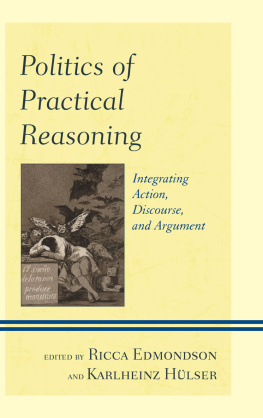



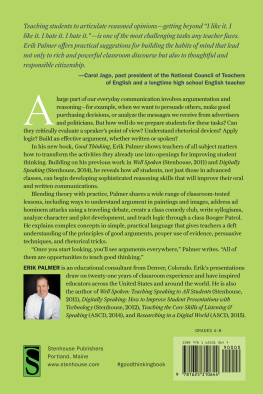
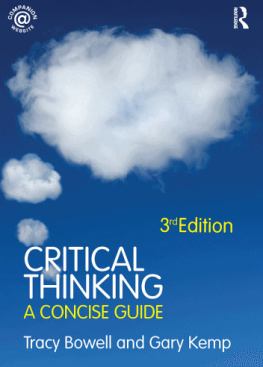
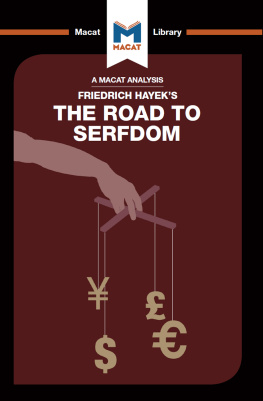
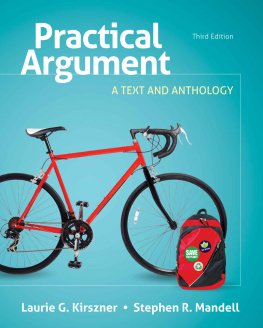
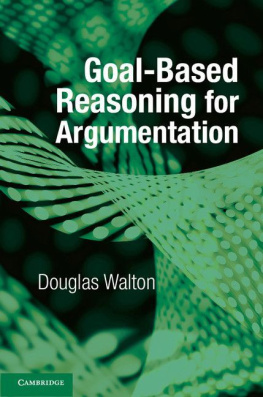
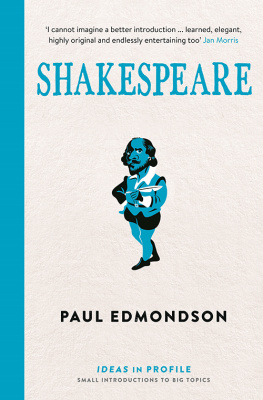
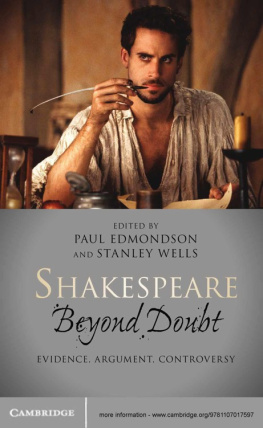

 The paper used in this publication meets the minimum requirements of American National Standard for Information SciencesPermanence of Paper for Printed Library Materials, ANSI/NISO Z39.48-1992.
The paper used in this publication meets the minimum requirements of American National Standard for Information SciencesPermanence of Paper for Printed Library Materials, ANSI/NISO Z39.48-1992.